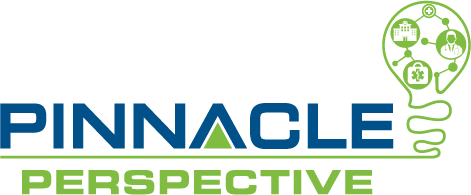
While mental health awareness month occurred in May, we need not forget the upcoming changes to Medicare Advantage members in CY 2024 and beyond.
On March 31, 2023, The Centers for Medicare and Medicaid Services (“CMS”) released the CY 2024 Advance Notice for Medicare Advantage and Part D. This advance notice will change everything we know about Risk Adjustment and Hierarchical Condition Category (HCC) Coding.
In the final notice, CMS deleted forty (40) ICD-10-CM diagnosis codes that currently map to an HCC in version 24 that will no longer map to a payable HCC in version 28. The change means that beginning January 1, 2024, all mental health codes under HCC (55 and 59) will no longer carry a risk adjustment score weight. Below, are just a few examples of how the migration from v24 to v28 will play a major role in how we receive reimbursement for mental health codes.
- 120, “Alcohol abuse with intoxication, uncomplicated” in CMS-HCC v24 maps to HCC category 55 with a risk adjustment factor of 0.329 and a monthly premium of $263.00. In CMS-HCC v28, it will now map to no HCC, carry no risk adjustment factor, thus impacting the monthly premium to $0.00.
- 70, “Bipolar disorder, currently in remission, most recent episode unspecified” currently maps to HCC category 59 with a risk adjustment factor of 0.309 and a monthly premium of $247.00. In v28 model, it will no longer map to an HCC, carry no risk adjustment factor, and affect the monthly premium to $0.00 reimbursement.
We are all asking ourselves, why the drastic change? Why now? CMS updates the risk adjustment models consistently to reflect the utilization and cost patterns for Medicare Advantage (“MA”) beneficiaries. Clinical revisions are updated to revise the composition of condition categories required to reflect changes in disease patterns, treatment methodologies, and coding practices. The update to the CMS-HCC model perpetuates the need for reclassification for changing risk adjustment payment models based on ICD-10-CM diagnoses codes. The model change for CY 2024 resulted in a more appropriate relative weight for HCCs contained in the model due to the utilization, coding, and expenditure patterns in Medicare Fee-for-Service along with clinical cost patterns associated with those associated ICD-10-CM codes. The current v24 model was based on the ICD-9-CM classification system, which did not account for the creation of the ICD-10-CM classification system, therefore, many of the diagnosis codes were obsolete. The risk adjustment model update utilized the most recent CMS-HCC risk adjustment model utilizing claims from 2014 and 2015, moreover the current model is utilizing the same years claims for diagnoses and expenditure reliability.
For the first time, CY 2024 will utilize a model that fully incorporated the clinical revision of HCCs using ICD-10-CM diagnosis codes. All previous versions of the CMS-HCC model utilized ICD-9-CM diagnosis codes to create the models. Based on this information, the CMS-HCC model will undergo a massive reclassification to better reflect diagnosis coding under the ICD-10-CM diagnosis classification system. Of the numerous changes to condition categories in v28, several additions, deletions, and revisions were related to each condition category, along with the ability to predict costs for Medicare Part A and B beneficiaries. The condition categories also eliminated the categories that did not predict costs, coefficients, or further specified diagnostic codes, which were eliminated from the v28 model.
Provider documentation will now take center stage as the variation of coding will no longer be allowed for discretionary conditions. Under Principle 10, which has been the standard evaluation of all risk adjustment models, the final notice stated, ”Coding these conditions is likely not consistent across the industry- including them in the risk adjustment model can lead to distortion of the marginal costs estimated by the model, reducing the ability of the HCCs in the model to predict stable costs and accurately predict those costs in alignment with the severity of the condition.” [1]
When CMS focused on Principle 10 for the CY 2024 update, they identified numerous diagnosis and condition categories that needed reclassification due to relative coding under Medicare Advantage plans, whereas the Fee-for-Service plans were based on clinical input to code each condition. Many of the HCC categories have either been revised, deleted, or the coefficient constraints have been restructured. Below, we highlight some of the changes and summarize the effects of the new model.
| 2020 Model (v24) | 2024 Model (v28) |
| 86 payment HCCs
9,797 FY22/FY23 ICD-10 diagnosis codes mapped to an HCC for reimbursement |
115 payment HCCs
7,770 FY22/FY23 ICD-10 diagnosis codes mapped to an HCC for reimbursement |
| Cognitive Disease Group: 2 HCCs | Cognitive Disease Group: 3 HCCs |
| HCC 51 (Dementia with Complications)
HCC 52 (Dementia without Complications) |
HCC 125 (Dementia, Severe)
HCC 126 (Dementia, Moderate) HCC 127 (Dementia, Mild or Unspecified) |
| Substance Use Disorder Disease Group: 3 HCCs | Substance Use Disorder Disease Group: 5 HCCs |
| HCC 54 (Substance use with Psychotic Complications)
HCC 55 (Substance use disorder, moderate/severe, or Substance use with Complications) HCC 56 (Substance use disorder, mild, except alcohol and cannabis) |
HCC 135 (Drug use with psychotic complications)
HCC 136 (Alcohol use with psychotic complications) HCC 137 (Drug use disorder, moderate/severe, or drug use with non-psychotic complications) HCC 138 (Drug use disorder, mild, uncomplicated, except cannabis) HCC 139 (Alcohol use disorder, moderate/severe, or alcohol use with specified non-psychotic complications) |
| Psychiatric Disease Group: 4 HCCs | Psychiatric Disease Group: 5 HCCs |
| HCC 57 (Schizophrenia)
HCC 58 (Reactive and unspecified psychosis) HCC 59 (Major Depressive, Bipolar, and Paranoid disorders) HCC 60 (Personality Disorders) |
HCC 151 (Schizophrenia)
HCC 152 (Psychosis, except schizophrenia) HCC 153 (Personality disorders; Anorexia/Bulimia Nervosa) HCC 154 (Bipolar Disorders without psychosis HCC 155 (Major Depression, moderate or severe, without psychosis) |
As you notice, many of the HCC groups from the v24 model have been expanded to include more detailed descriptions under the v28 model. In many ways, the expansion is good for code capture; however, in many instances it is not. Fortunately, Pinnacle has the knowledge and tools to navigate you through the model change and assist with the conversion. Pinnacle offers coding, auditing, and educational services pre and post implementation! Please contact Amy Pritchett, Manager HCC Coding/Audit & Education Services, at APritchett@askphc.com for more information.
[1] (https://www.cms.gov/files/document/2024-advance-notice-pdf.pdf).
